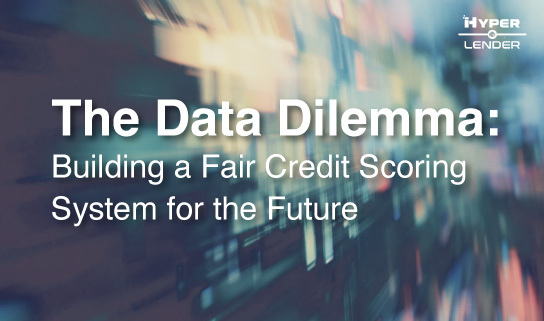The Data Dilemma: Building a Fair Credit Scoring System for the Future
As part of the Hyperlender project, which this technology centre is developing in collaboration with Eurostar through the 2021 Public-Private Partnership Projects Programme, one of the most fascinating challenges we face is not only technological, but also ethical: how can we use data to build a fairer, more inclusive credit risk evaluation system?
A Hybrid Approach to Inclusive Credit Scoring
One of the major issues in today’s financial system lies in the way creditworthiness is assessed. Traditional scoring models rely on a limited set of historical data, which often leads to the exclusion of applicants who are perfectly capable of repaying a loan. To overcome this barrier, Hyperlender has adopted a hybrid approach. On the one hand, we integrate external credit scoring systems as a starting point; on the other, we enrich them with our own Artificial Intelligence algorithms.
The goal of this combination is to gain a multidimensional understanding of each applicant. While the external score provides us with a standardised baseline, our AI models are designed to analyse alternative indicators and subtler patterns. This enables us to build a much more comprehensive and fair risk profile, opening the door to applicants who, despite their potential, would be overlooked by conventional systems.

The Retraining Challenge: Adapting AI to the Local Context
Our AI algorithms are already pre-trained using external data from international markets. While this provides a functional starting point, we are fully aware of its limitations: the socio-economic factors that determine credit risk in one country cannot be directly applied to another. A model trained on data from a different context may not be perfectly calibrated to the reality of our users.
For this reason, our medium- and long-term strategy focuses on the continuous retraining and refinement of these algorithms. The true value will emerge from feeding our models with real, organically generated data from within the platform itself — always anonymised and with the user’s consent. This “adaptive learning” process will enable us to gradually adjust the weighting and variables of our algorithms to accurately reflect the nuances of the local market.
This strategy reflects a commitment to both excellence and fairness. Rather than relying on generic models, we are building a scoring system that will evolve alongside our platform. As the platform grows, our algorithms will become more intelligent — and above all, fairer — ensuring that credit decisions are grounded in a deep, contextualised understanding of each individual’s profile.